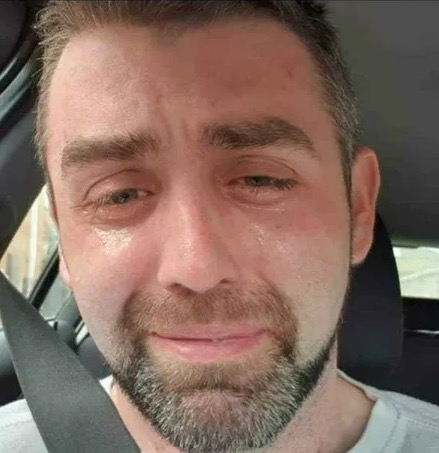Being a father means protecting, providing, and creating security for your children. But when the system that is supposed to support families fails, what consequences does that bring for those already struggling?
The tragic case of Phillip Herron is a harsh reminder of what can happen when a worried parent is left alone with debt, anxiety, and silence from institutions.
A crushing source of pain
Phillip Herron, a factory worker and single father of three from Durham, England, had just $6 in his bank account when, in 2019, he decided to end his life. He was only 34. The direct cause: the delay in receiving his first Universal Credit payment — a weeks-long wait that proved merciless and tragic.
Universal Credit, introduced by the UK government to replace several older benefits with a single monthly payment, was meant to simplify the system and encourage work. But for many applicants, the program turned into a crisis point: new claimants must wait at least five weeks for their first payment.
Like many others, Phillip applied — but still had no money to feed his children or pay rent. He was buried in nearly $25,000 of debt, including payday loans with destructive interest rates exceeding 1,000%. He never told his family how serious the situation had become.
“The breaking point”
The waiting and pressure finally broke him. “When people ask for help, they’re already at a desperate point,” his mother, Sheena Derbyshire, said. “Making them wait so long is dangerous.” She believes the benefit delay was “the final straw” — the last element that pushed Phillip toward his fatal act.
A blow to the family
Phillip’s final hours were heartbreaking: a tearful selfie posted from his car, and a farewell note. The next day, on a country road, he ended his life. His family was crushed by the news. “It was a total shock,” Sheena said. “We didn’t know how bad it was. He wrote that the family would be better off without him. That shook me.”
After checking his documents, Sheena discovered massive debts to banks and utility companies, an eviction notice, and the looming threat of repossession. The voice messages she found were especially painful. “Listening to them was the hardest thing I’ve ever done,” she said.
His children were left traumatized; the youngest still dreams of him and remembers his words. According to his mother, none of the children received therapy.
Public reaction was sharp and angry, with social media users accusing the Department for Work and Pensions of failure: “Now another dead on your blood-stained hands,” one wrote.
A mother’s voice and a call for change
Sheena spoke out to help others who might be on a similar path: “It doesn’t happen in a moment — it’s a build-up. Please, talk to someone. If you can’t turn to family, reach out to organizations like Samaritans.” She hoped that the evidence would be used in a full inquest to reveal flaws in the Universal Credit system, though it is unclear if she ever saw justice.
The official response from the DWP stressed that suicide is complex and cannot be linked solely to a benefit claim, but reaffirmed its commitment to protecting vulnerable claimants and reviewing rules continuously.
Not an isolated case
Phillip is not the only one. Other tragic cases highlight how financial hardship and administrative failures can destroy lives: Stephen Smith, declared “fit for work” while chronically ill; 81-year-old Joy Worrall, who ended her life after her pension was frozen and she was left with just $6; and Martin John Counter, who took his life after being falsely accused of benefit fraud. These stories expose how the system can fail fragile people.
Phillip’s last months show the struggle of a man fighting to hold his family together. He felt ignored by the administration — and it proved fatal. His mother delivers a warning: “If things don’t change, he won’t be the last.”
